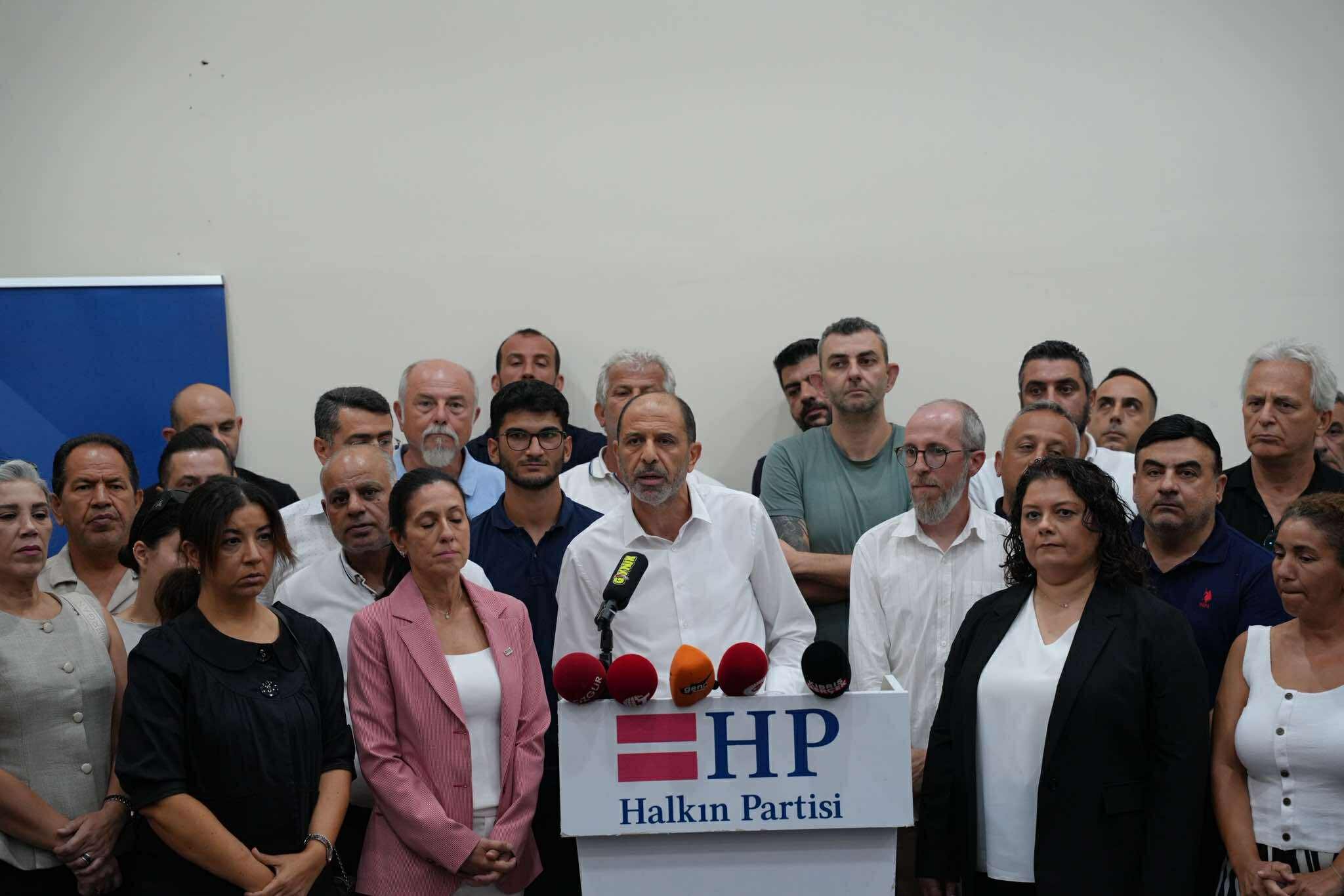Former Turkish Cypriot chief negotiator Kudret Ozersay on Wednesday night announced that he will not stand in this October’s Turkish Cypriot leadership election.
Ozersay had stood in both the 2015 and 2020 elections and ranked in fourth place on both occasions, though in radically different circumstances.
In 2015, he was the surprise package, outperforming polling to win over 21 per cent of the vote, having left his role as then incumbent Dervish Eroglu’s chief negotiator to run as an anti-corruption centrist.
In that election, he won just shy of 23,000 votes – only a little over 6,000 fewer than Mustafa Akinci’s total. Akinci went on to win the election’s second round and be elected a week later.
Five years on, he stood for election with his personal popularity having plummeted after he and the HP, the political party he had formed in 2016, had entered into a ruling coalition with the UBP, which was at the time led by Ersin Tatar.
He had resigned from his post as Tatar’s ‘foreign minister’ days before the election in reaction to Tatar opening Varosha to the public without consulting him, and won just 5.7 per cent of the vote, with Tatar going on to be elected in that election’s second round.
On Wednesday night, he announced that he and his party had decided against a third run for the Turkish Cypriot community’s highest office, and that instead, “we will work to prepare for an early general election, eliminate this devastation in the country, and end corruption, theft, and partisanship”.
He said the north has been facing “very serious social and political corruption, ranging from fake diplomas to bribery and the collapse of state institutions through illegal transactions”.
“With the state in this state, with state institutions crumbling to pieces, it is clear to everyone that it is impossible to effectively combat these problems and this level of corruption with only the powers of the presidency,” he said.
For this reason, he added, “in order to rebuild this collapsed state structure and to effectively combat corruption and injustice, we, the HP, believe that it is far more meaningful and necessary to participate in the government”.
The north’s next ‘parliamentary’ election must take place before February 2027, though some, including ‘transport minister’ Erhan Arikli, have suggested that it may instead take place in the early part of next year.
Ozersay still took time to speak about the Cyprus problem, the issue which, institutionally, is in the Turkish Cypriot community entirely devolved to the Turkish Cypriot leader’s office.
“We, the HP, have defined a different solution to the Cyprus problem beyond established patterns. We call this an alternative path based on evolutionary, step-by-step cooperation – the third way. We have outlined a vision based on cooperation in our region, involving not only Cyprus’ two sides, but also the guarantors,” he said.
He added that this concept, “namely cooperation in resolving the Cyprus problem”, has “become increasingly established in Turkish Cypriot politics over the last 10 years”, and that “all segments of the political spectrum have begun to embrace it”.
He then went on to say that he and his party will “evaluate the visions and approaches presented by the candidates during this election process according to our own vision and will”, and that he will “also have some questions and criticism for those who will run”.
“In this way, we will strive to guide our party base and the people, helping people to make sound decisions in this election and vote accordingly. We will strive to help them make their decisions,” he said.
As such, he added, his party will be “actively participating in this presidential election process” despite not fielding a candidate.
“We will continue to make our statements, suggestions, and criticisms on the Cyprus issue and related issues related to the presidency. Based on this understanding, we will enlighten the grassroots of the HP within the framework of our vision and help voters make their own decisions with their own free will,” he said.
He then made reference to the fact that the election’s two main protagonist candidates, incumbent Ersin Tatar and challenger Tufan Erhurman, have been racking up endorsements from political parties in recent weeks.
“Although the election process has not yet officially begun, it is both known and rumoured that some negotiations have taken place among certain segments, and that statements of support for candidates have resulted from these negotiations,” he said.
He added that “our people do not approve of such approaches”, and that on account of this, he “would like to emphasise now that we will meet with all candidates who wish to meet with our party during this election process, and that our door will be open”.
However, he said, “we will not negotiate for positions with any party or candidate”.






Click here to change your cookie preferences